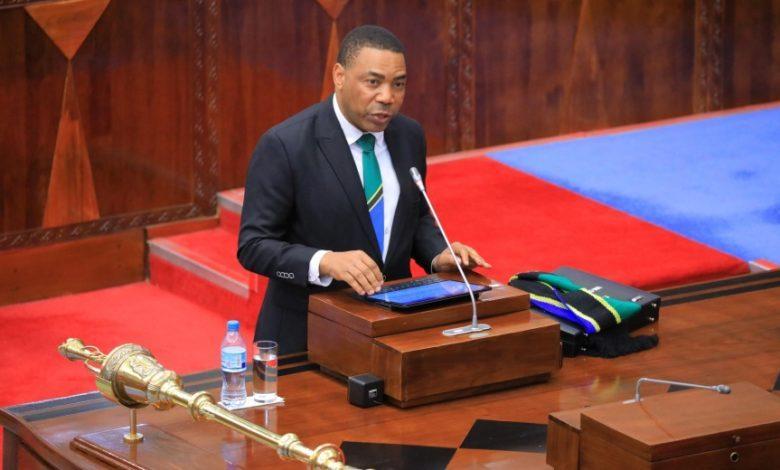Africa-Press – Tanzania. THE government has amended Section 146A of the Excise (Management and Tariff) Act to grant excise duty exemption on undenatured ethyl alcohol when used in the production of non-alcoholic goods.
This measure aims to reduce production costs for industries such as pharmaceuticals and cosmetics, enhancing their competitiveness in local and regional markets.
The amendment forms part of a broader fiscal strategy to foster a more enabling environment for domestic manufacturing.
On Thursday, the National Assembly passed the Finance Bill 2025, setting the stage for a wide-ranging series of tax and regulatory reforms designed to energise the nation’s economy and improve government revenue collection.
The Bill, soon to become the Finance Act 2025 upon assent by President Samia Suluhu Hassan, includes amendments to various tax and non-tax laws.
According to Finance Minister Dr Mwigulu Nchemba, these reforms are part of a strategic effort to position Tanzania’s economy on a higher growth path while enhancing domestic revenue mobilisation.
“This is a strategic intervention designed to place Tanzania’s economy on a stronger growth trajectory, while ensuring more effective domestic revenue mobilisation,” Dr Mwigulu told lawmakers.
Among the key changes are adjustments to tax rates, charges and fees, which aim to reinforce the government’s fiscal capacity.
The Bill also proposes amendments to laws governing taxation and public revenue management.
The government has also clarified and formalised funding for the Fair Competition Commission (FCC) through amendments in Part X of the Finance Bill 2025.
The proposed revision to Section 78 of the Fair Competition Act (Cap. 285) sets a fixed rate of 1.5 per cent of fees collected from business licences as part of the Commission’s revenue.
This replaces the previously vague provision that allowed any amount not exceeding 2.5 per cent.
Additionally, regulatory authorities such as Energy and Water Utilities Regulatory Authority (EWURA), Land Transport Regulatory Authority of Tanzania (LATRA), Tanzania Communications Regulatory Authority (TCRA) and Tanzania Civil Aviation Authority (TCAA) are now required to remit 1 per cent of their gross revenue to a special FCC account held at the Bank of Tanzania (BoT).
These reforms are intended to enhance financial transparency and sustainability for the FCC as it works to uphold fair market practices across critical sectors.
The government has also increased taxes on gambling and betting winnings as part of efforts to fund health-related initiatives.
The Finance Act 2025 is expected to come into effect on July 1, 2025, marking the start of Tanzania’s new fiscal year, following the President’s assent.
The Parliamentary Budget Committee praised the government for a comprehensive set of amendments across 33 tax laws, and for incorporating some of the committee’s recommendations.
The committee expressed optimism that the Finance Bill 2025 will stimulate growth in key economic sectors, improve the investment climate and enhance social services.
It also urged the government to intensify efforts to broaden the tax base and improve revenue collection to meet national development goals.
Budget Committee Vice-Chairperson Twaha Mpembenwe highlighted ongoing revenue challenges, particularly the limited tax contributions from the informal sector and Small and Medium Enterprises (SMEs).
Despite SMEs accounting for 95 per cent of businesses and contributing 35 per cent to GDP, they currently provide only 20 per cent of tax revenues.
The committee stressed the need to improve SME registration and compliance, revealing that out of more than 2.4 million registered taxpayers as of December 2024, only about 688,000 (28 per cent) were active.
The committee called for stronger engagement to boost voluntary compliance under the slogan, “Our Tax, Our Development.”
Mr Mpembenwe also noted that the informal economy, which makes up an estimated 54 per cent of Tanzania’s economy, remains a largely untapped source of revenue.
Many informal businesses avoid formal registration due to complex regulations and high costs imposed by multiple authorities.
To address these barriers, the committee recommended reviewing current tax procedures and rates to simplify the system, encouraging formalisation and tax compliance.
For More News And Analysis About Tanzania Follow Africa-Press







